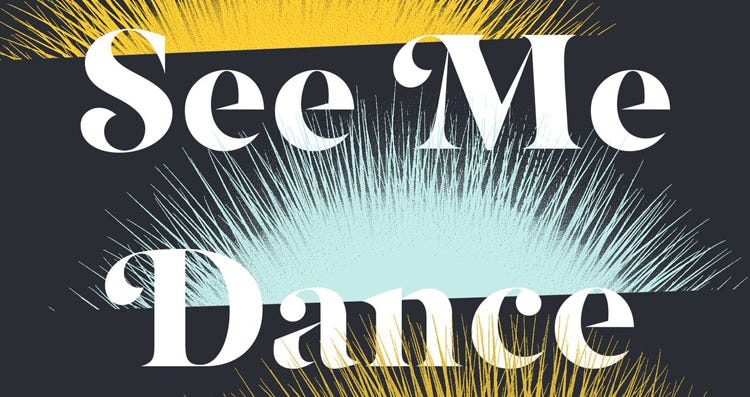Books & Culture
On the Quiet Power of Unlikable Women
Deb Olin Unferth’s short story collection Wait Till You See Me Dance approaches the topic of age with dark humor

“She could see she was becoming a thoroughly unlikable person.” So begins Likable, the first piece in Deb Olin Unferth’s short story collection Wait Till You See Me Dance. This unnamed, unapologetically self-aware character imagines her offensiveness growing as she ages, and ultimately embraces this quality as a pseudo superpower. “Likable” acts as a springboard for Unferth to explore the fairytale stock figure, the crone: a simultaneously wise yet repulsive, and often nefarious, older woman. Age serves the crone well in that it imbues her with knowledge, while conversely rendering her unpleasant and disagreeable. She is overlooked, yet powerful. Unferth both modernizes and lifts the curtain of this tried and true archetype to reveal complex characters with faults, victories, and desires.
In the books second story, “Pet,” Unferth’s present day crone takes the form of a single mother living in a basement apartment with her aloof and angry teenage son. The central plot is her struggle to care for two ailing turtles that once belonged to her sisters’ children. When the distraught protagonist attempts to return the turtles, her sister replies, “I don’t care what you do with those turtles but don’t bring them here. I’m the good guy for once. Their aunt stole them — it wasn’t anything I did.” These women feel a real danger associated with aging, and the negative societal implications that follow. By foisting the turtles upon the protagonist, the sister attempts to free herself of impending crone status at the cost of dooming her own kin. Unferth’s characters, despite their best efforts, find themselves exhibiting crone characteristics.
“In Unferth’s world, moving forward is an act of fortitude.”
The turtles themselves are a classic symbol of age and endurance. With the ability to live over 100 years, the turtle is a mystical and ancient being, and yet the protagonist carts around in a tool case throughout the story. She takes them to the vet and to her support group, but they are considered inconvenient, and their illness is not taken seriously. The comically dark trio fumble throughout the story, unable to get the care and respect they deserve. At the end of the story, they return to the protagonist’s basement apartment, only to have find feces covering the bathroom walls due to a faulty drain. Amidst this chaos, she receives an unexpected call from a man in the support group. He suggests she release the turtles in a local pond. The story ends with the protagonist imagining releasing the turtles into a pond, where the can commune with other turtles. She envisions them far from their artificial basement dwelling, and frees herself by proxy.
Unferth’s exploration of the crone raises a pertinent and wholly modern question: how does the middle age women exist inside this space of erasure? When a woman is seen as unviable in a sexual marketplace that hinges upon the male gaze, existence outside of this gaze is simultaneously delegitimizing and empowering. In the title story the protagonist, another unnamed woman, is an ESL teacher. She is underpaid, her students resent her, and she is apathetic to the ineffectiveness of her teaching. She does, however, reveal to the reader that she has a unique power. She knows when people will die, saying, “I can look into their faces and see if they have long to last. It’s like having a knack for math or a green thumb…people wear their health on their faces.” Despite her usual apathy towards the success of her students, she takes a liking to a pupil who she knows could die, because if he does not pass the test, as he will be forced to return to his war torn home country. His English is very poor, and her only hope of saving him is switching his grade so he passes. To change his grade, she must bribe a disagreeable office assistant by driving her to a traditional Native American dance ceremony. The drive takes hours, and the assistant taunts her by calling her “Mary,” a reference to a movie —
“…where the angel comes to earth and shows a man the future and how bad it’s going to be, and the man looks at the future and says, ‘But what about Mary? What happens to her?’ And the angel says, ‘You’re not going to like it George.’ And George says, ‘Well, I have to know. Tell me, Angel.’ And the angel says, ‘She’s an old maid! She works at the library!’ and the man says, ‘Noooooo!”
It is poignant that we never know the narrators name, and that the only identification we have is a false name concocted by a mean spirited, manipulative person, who has no name other than “the assistant.” The narrator ultimately gets fired and is not able to influence the outcome of the boys test, but despite this dreary plot line there is a hint of redemption in the very last sentence. The narrator says, “I may be an old maid, and I may spend the rest of my life loving people who never loved me, and loving them in ways that aren’t good for me, but I stepped around with her. I danced.” She realizes that being unwatched, albeit isolating, offers a greater freedom of movement. Unferth is a master of comic darkness punctuated by a glimmer of hope.
Unferth brand of dark humor echoes Voltaire’s Candide, and she directly references the classic satire in Voltaire Night. This story features another unnamed middle age woman who teaches a continuing education class, this time in fiction. The narrator describes her student’s writing as “nothing to shout about. Not good, mostly unreadable.” At the end of the term, she proposes a game: everyone must recount the worst thing that’s happened to them. Her primary motivation for this game is that she will be able to talk about a recent breakup and have a captive audience. Like Voltaire’s own Candide, the student’s tales of woe are abundant. Although the students revel in the opportunity to air their grievances, there is ultimately no prize to be won. No one’s suffering has currency. In true crone fashion, the narrator becomes leader of a strange and somewhat sinister cult. Students take the class again just to attend Voltaire night. Their stories become increasingly tragic, and she wonders if it’s all gone too far. Attendees seem to be under a spell. Voltaire night lasts longer and longer, into the wee hours of the morning.

Voltaire’s message that we must “cultivate our garden” despite continual and senseless setbacks is prevalent throughout Unferth’s collection. By the end of each story, Unferth’s characters, despite constant humiliations and degradation, manage to pick themselves up. They exercise their offbeat power and savor small victories amidst the erasure imposed upon them. In Unferth’s world, moving forward is an act of fortitude.









